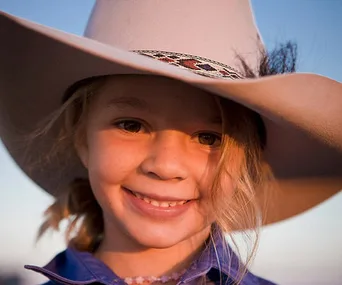Jessie Tolhurst was 14 years old. Libby Bell was 13. Jessica Cleland was 19. Allem Halkic had just turned 17. And Amy “Dolly” Everett was 14.
Each of these young Australians appeared to have a bright future ahead of them. Libby loved the beach. Jessica Cleland was starting university. Allem was a passionate sportsman. Photos reveal the bright and happy potential of these teens, but tragically these photos are all that remain. And those smiles hide a pain so real, yet so deep, that even those closest to these victims had no idea it was destroying them from the inside out.
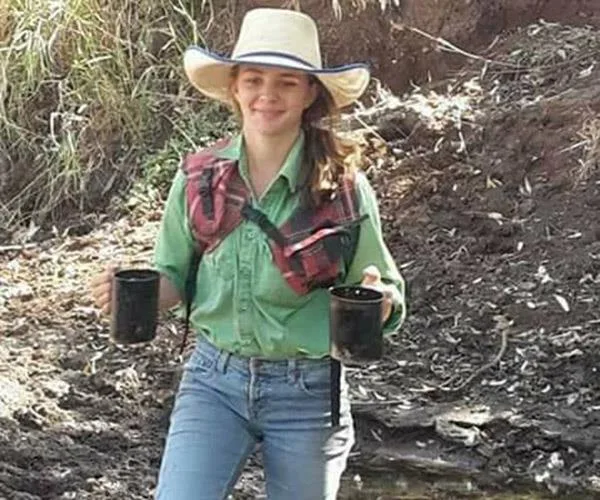
On January 3, 2018, Amy Everett — affectionately known as Dolly — took her own life after suffering a vicious campaign of bullying. Image via Facebook.
This January, a well-known cattle farming family in the Northern Territory became the latest to find themselves grappling with the grief and confusion that inevitably follows the suicide of a young person.
Amy Jayne Everett ended her life in an act her father Tick Everett said was “what she thought she had to do tho escape the evil in this world.”
Nicknamed “Dolly” because she looked like “a perfect little China doll”, the animal lover who “made friends with everyone she met” was tormented by cyber-bullies until she couldn’t take it anymore, the family says.
Tick, his wife Kate and elder daughter Meg invited the bullies to attend the funeral so they would understand the consequences of their actions. Speaking after the service, Tick urged parents, teachers and community leaders to roll up their sleeves. “Talk to them about their relationships,” he said to parents.
The Everett’s have channelled their grief into raising awareness about the scourge of bulling in a bid to save other young lives. Invoking Dolly, they shared the final drawing she did before she left this earth, which included the phrase “speak even if your voice shakes.”
SILENT KILLER
“She never told anyone about the bullying. That was the biggest shock for everyone,” says Amy Cleland, whose sister Jessica’s death was linked to cyber-bullying by Victoria’s coroner.
In the weeks before she killed herself, Jess Cleland had adopted a lost cow and named him Charlie. The Kilmore home she shared with her family had been damaged by the Black Saturday bushfires and the gentle bovine had wondered past the charred fence line of the country Victorian property. A natural animal lover, Jess fed the wondering creature, and cared for him. He disappeared for a few days, but then he came back. Perhaps a more accurate way to describe the relationship is that Charlie adopted her.
“During the fires all the fences were burnt so Jane and I got away and we got this message: ‘A cow’s turned up! Can I keep him?'” Jess’s father Michael Cleland remembers.
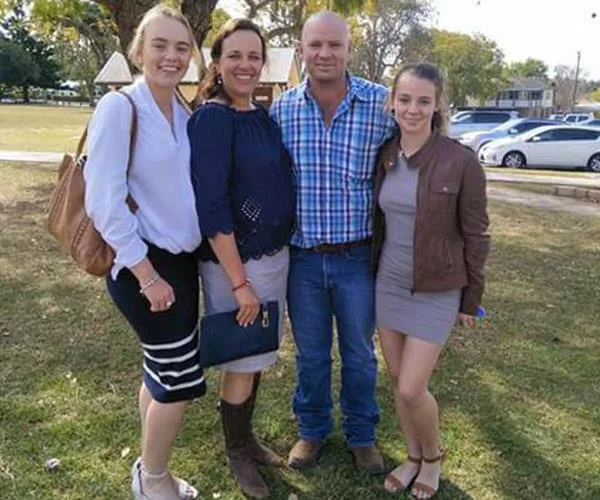
Dolly (R) is pictured with her sister Meg, mum Kate and dad Tick.
“She was always destined to work with animals,” says Amy. “She had a staffy named pilot. He’s black and white, like he’s wearing a tuxedo. He was the love of her life.”
Gregarious and seemingly happy, Jess had big plans. In April 2014 she was due to attend orientation for her university course and she was learning to drive. On the morning of Easter Sunday she messaged her mother Jane to say she was going for a run. When she hadn’t returned four hours later the family went out to look for her. It was Michael who discovered her alone in the bush. She was cold to the touch and her pockets were stuffed with suicide notes.
Confused and too shocked to grieve properly, Michael and Amy started hunting for the reason behind the tragic demise of their sunny, funny girl.
“We still had her iPad and her laptop,” Michael says. “You could see that they had been nasty to her the night before.”
They are two boys Jessica knew from school. They can’t be named, by order of the Victorian Coroner’s court. But in her report on the death, coroner Jacqui Hawkins found messages received by Jessica before she took her own life, in conjunction with the difficulties she was having with her boyfriend, were “precipitating factors.”
“The circumstances of Jessica’s death highlight the important role that social media and other communication technologies can play in young people’s lives,” Coroner Hawkins found.
The Facebook and text messages were problematic because ease of access to her phone meant she was exposed to potentially upsetting communications 24 hours a day, and she was able to re-read the upsetting messages and ruminate about them, the coroner found.
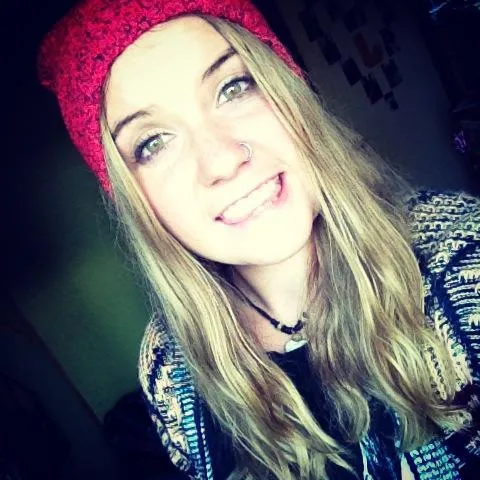
Jess Cleland was 19 when she ended her life. Image: Facebook
“This physical separation of parties to a conversation through online chat and SMS creates an environment where it is easier for individuals to say hateful and hurtful things without facing the immediate consequences of doing so,” Coroner Hawkins said.
The “tragic and unintended consequences” of the messages left Jess’ loved ones hungry for justice, and asking themselves how they could stop this from every happening again.
“I was questioning them saying why would you do that, why would you say that, how could you have the right to tell someone they’re not worthy to be in this world?” Amy says.
NAMES WILL NEVER HURT ME
University of NSW Neurologist Dr Sylvia Gustin says society completely underestimates how serious cyber-bullying is.
“They think, at least he or she didn’t hit me, it’s only words and words can’t hurt,” she says of victims. They minimise the hurt they feel and blame themselves.
“They supress feelings of anxiety and sadness and hopelessness but it’s very difficult to suppress your emotions. It doesn’t work.”
Research shows emotional abuse can be as damaging as physical abuse and can result in mental health disorders such as anxiety, depression and even suicide, Dr Gustin says.
Because their brains are still developing young people are particularly vulnerable, she says.
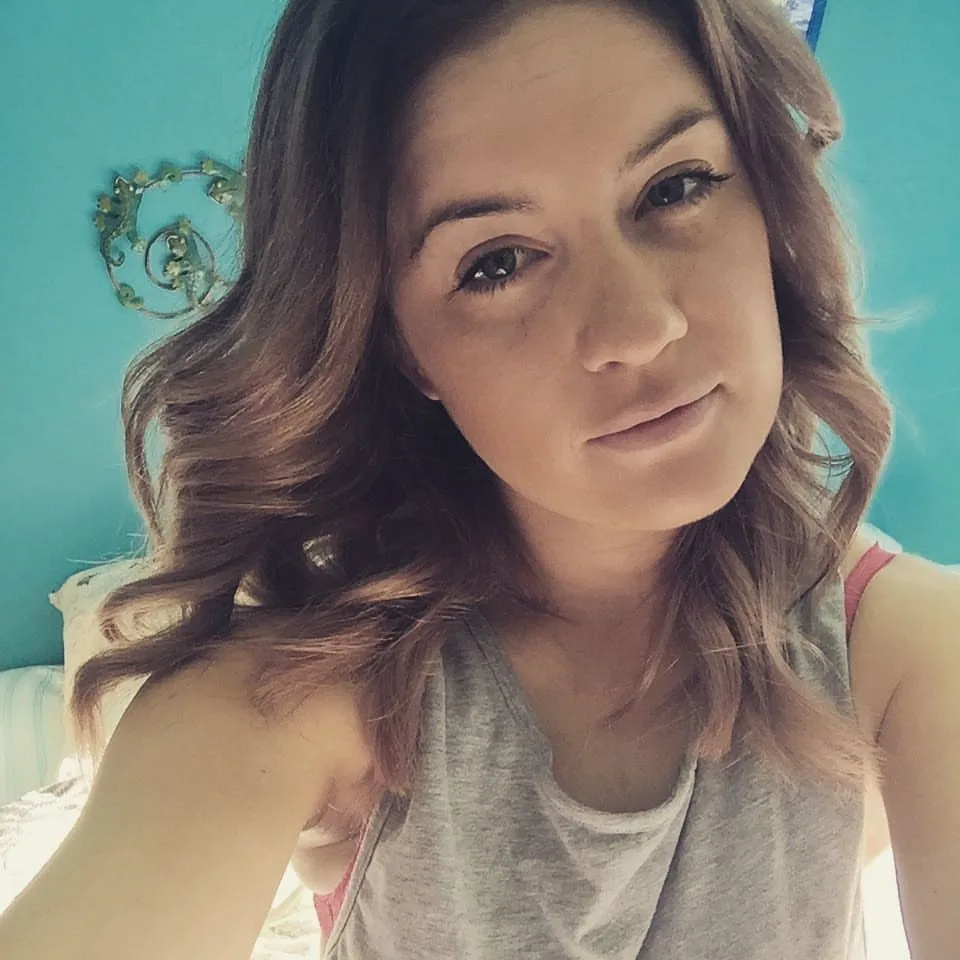
Amy Cleland, Jess Cleland’s sister. Image credit: Facebook
In the 2016/2017 financial year, Australia’s eSafety commissioner received 305 complaints about serious cyber-bullying targeting Australian children. The office referred 1400 young people to Kids Helpline. In the six months to December 2017, almost one third (32 per cent) of cyber-bullying complaints received by the office involved specific threats to the child’s safety.
When South Australian teen Libby Bell took her life in August last year eSafety Commissioner Julie Inman Grant said it is vital to raise awareness of the resources that can prevent devastating actions.
“While laws can address the damage after the fact, they may not serve as a deterrent to teenagers, whereas education and early intervention can prevent devastating outcomes,” Ms Inman Grant said.
Story continues after video.
Dr Gustin stresses not all teens will have a severe response to bullying. But for those who do, the fallout is catastrophic. For Jessica Tolhurst, who was home-schooled for a year, transitioning back into a mainstream school at the beginning of Year 8 was difficult.
“They didn’t want her to be the popular girl at school,” her mother Mel says. “It spiralled massively with threats and death threats and really, really bad (messages).”
“She just couldn’t understand why. What had she done wrong?”
As a result of bullying, Jess developed anxiety, depression and an eating disorder. Mel says she knew the bullying was bad, but she had no idea how seriously it was effecting her daughter. Her attempts to get the school to intervene resulted in her daughter being isolated.
One Monday, Mel went to pick her son Jack up from school. They stopped at McDonald’s on the way home to buy a “famous Jessie slushie”. When they got back to the house, it was silent.
“Jack and I were about to find my baby chook gone. She left us. There was no life left,” Mel wrote in a letter describing the day. “I have lost like no other. I’m left spending every day without my chook.”
Speaking to The Weekly Mel says Jess had been the victim of a relatively minor bullying incident when she was in Year 5. The school acted swiftly to stamp out the behaviour, talking to the students about bullying and fostered a “friendship circle”. She says this shows engaged schools can be effective in reducing bullying.
Tragically, when Jess reached Year 8, the bullying shifted from schoolyard taunts to something altogether more nefarious. Mel thought her daughter had a physical illness, but what she was witnessing was the beginning of her daughter’s mental decline.
Dr Gustin describes how messages sent via a phone or an app can change a young person’s brain.
Consider the little pulse of happiness that a social media “like” can elicit, she says. If online feedback is negative — for example if someone says a new dress in a photo is ugly — the person on the receiving end of that feedback may be persuaded to never wear it again.
“So if it’s really violent words like, I hate you, I’ll kill you, as is seen in cyber-bullying, you can imagine the effect that has,” Dr Gustin says.
“They are creating a lot of stress and what we also know is an increase of cortisol can kill brain cells.” The result can be problems like post-traumatic stress disorder.
“You have a massive increase in cortisol and it is damaging brain cells in the hippocampus. The hippocampus is an area in the brain that is responsible for our learning. So they get flashbacks of these messages. Flashbacks if the images. They come out of the blue. They are uncontrolled and this is because the brain is not anymore working in a healthy way.
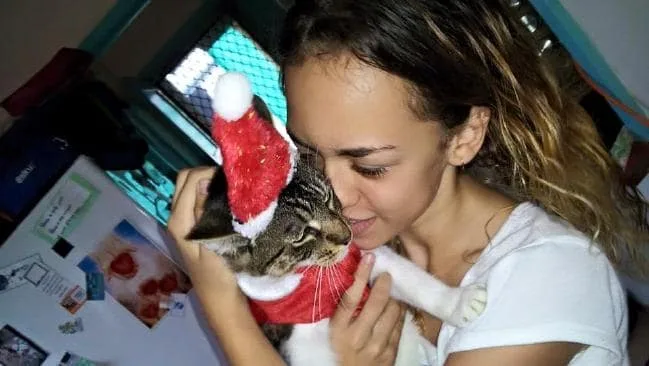
Jessica Tolhurst was just 14-years-old when she ended her life. Image: Facebook
THIS IS A CALL
The Clelands want to see Australia beef-up its laws to protect victims of cyber-bullying.
“There’s no line drawn in the sand to say if you bully someone and it causes a death … there’s no consequences and you can just go onto the next one,” says Michael.
They’re frustrated the young men who harassed Jess have never faced any consequences, despite the coroner’s findings.
“They left us with nothing,” Michael said. “The DPP (Director of Public Prosecutions) said to (police) you won’t get a prosecution so they didn’t bother. Then when the coroner says I can’t do anything, it’s up to the police. It feels like someone had hit you with a train.”
“It’s like they put it in the too hard basket,” Amy said.
A Senate Committee is investigating whether Australian law adequately addresses cyber-bullying. A submission by an alliance of psychologists, lawyers and academics says that it is. Considering the ages of young people who cyber-bully, managing the issue through criminalisation, punishment and retribution is a potential problem, The Australian Universities’ Anti-Bullying Research Alliance said in a submission to the committee.
The group further argues the American experience shows criminalising school bullying has not resulted in decreased behaviour.
“Cyber-bullying, like all other forms of bullying, is a complex relationship problem which is deeply embedded in our society and which requires equally complex social and behavioural responses and interventions,” AUARA says.
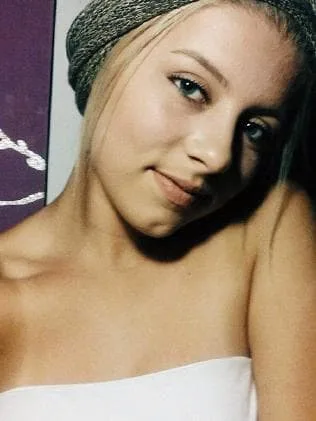
Libby Bell was just 13-year-old when she took her own life. Image credit: Facebook
Extreme examples of cyber-bullying can be dealt with under misuse of telecommunications systems legislation, or stalking laws, AUARA says.
Melbourne anti-bullying activist Ali Halkic fought hard for the young man who trolled and bullied his son Allem before he committed suicide to be prosecuted. The perpetrator was eventually charged and convicted under Victoria’s anti-stalking laws. After Allem died, Ali searched for answers. It was the police who showed him the trail of abusive messages on the 17-year-old’s computer and phone. “The sense of security of having your child at home … exposed us,” he said. “Everything was happening between 10.30 at night and 3 AM.” Ali, who founded the Bully Zero Australia Foundation, argues we need to change our perception of bullying.
“It’s such a soft word, but it’s mental abuse and social abuse,” he says.
“A bully is I’m picking on you, I’m teasing you. Unfortunately the era of my era is that’s what we see. A bully is kids at school. When I think what happened with Allem, he was mentally abused. His innocence was crushed. He was in fear of being hurt and that word bully does not describe what Allem went through.”
“When I say abused, that slaps you in the face.”
Since the death of his only son, Ali has dedicated his life to counselling bereaved families, educating parents about online bullying and trying to engender real change in the community. Young people who engage in this sort of behaviour, need to be made aware of its potential consequences, he says. “I knew who my son was. And I knew his mum was the best mum. Those things would never change. The only one thing I’d change would be that he would understand the reality of what life is.”
“We were good parents and he was a good kid and he deserved to live.”
You can report cyberbullying to esafety.gov.au/reportcyberbullying.
If you or someone you know needs help, call Lifeline on 13 11 14 or Kids Helpline on 1800 55 1800.

